Speaking before the United Nations General Assembly, Prime Minister Pham Minh Chinh emphasized the important role of "strategic trust".
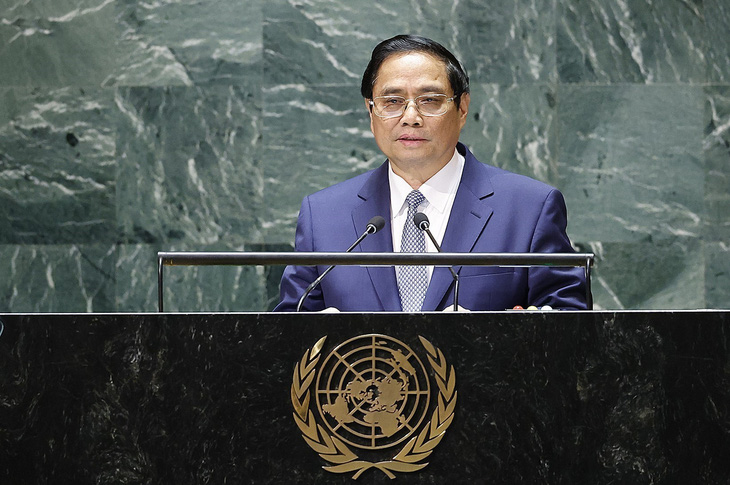
Prime Minister Pham Minh Chinh speaks at the United Nations General Assembly - Photo: VNA
According to the Prime Minister, this factor helps promote cooperation between countries and effectively address common challenges.
The Prime Minister's prioritization of " strategic trust " as a central solution to global issues not only helps highlight this year's meeting's theme of "Rebuilding trust and promoting global solidarity", but also reflects the maturity and acumen of modern Vietnamese diplomacy .
The basis of "strategic trust"
As the Prime Minister mentioned, the world is facing a series of challenges, notably conflicts, arms races, nuclear weapons risks, and slow recovery of the world economy. In this context, building and strengthening strategic trust plays a fundamental role, helping countries overcome differences, promote dialogue, enhance understanding, and strengthen relations.
The meaning of "strategic trust" is that cooperation between countries can only be carried out and maintained when the parties have three beliefs: trust in partners, trust in sincere cooperation and trust in international law. There are some contents that need attention related to the "strategic" nature of the concept of "strategic trust".
First of all, while "trust" is the premise to ensure strong cooperation, sincerity is the core for the parties to create, maintain and strengthen trust. Because without sincerity, misunderstandings can arise, trust is easily shaken and genuine cooperation is difficult to happen.
Or if cooperation exists, it is difficult for the parties to touch on sensitive issues or those that require substantial, long-term efforts. In the face of challenges, sincerity helps the parties share, sympathize, and increase hope to resolve obstacles from both bilateral and multilateral perspectives.
Strategic trust also implies serious and long-term commitments. To achieve this commitment, countries must have a clear vision and understanding of each other, and must have independence in foreign policy planning. Accordingly, the parties need to interact regularly, increase exchanges and maintain flexibility in handling arising issues.
Strategic thinking reflects a high degree of shared interests. For common interests to act as the glue that holds a relationship together, a deep understanding of each other’s foreign policy principles, key concerns, and specific policies is essential.
For greater common benefits, parties also need to improve limitations and strengthen links at multiple levels (such as government, local), scope (regional, inter-regional, global) and participants (such as scholars, businesses, citizens).
At the same time, strategy also involves trust in the "rules-based international order", compliance with international law and the United Nations Charter, and trust in multilateral mechanisms in addressing challenges.
To do so, the parties must have the responsibility to work together to build a common awareness of the importance of dispute resolution mechanisms, and to be serious about the agreed principles and standards.
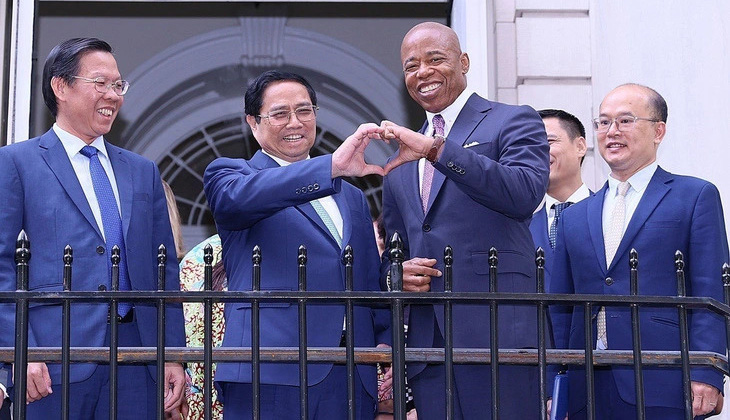
Prime Minister Pham Minh Chinh met with New York Mayor Eric Adams and witnessed the signing ceremony of the Memorandum of Understanding establishing sister city relations between New York City and Ho Chi Minh City on September 22 - Photo: VNA
Vietnam values trust and responsibility
For Vietnam, strategic trust is an important pillar in building and developing foreign relations. The Prime Minister pointed out that, "having experienced much pain, sacrifice, and loss from many wars, separations, sieges, and embargoes in the last century, Vietnam understands better than anyone and greatly appreciates the value of peace, cooperation, and development."
To achieve "peace, cooperation, and development", Vietnam has made many efforts to strengthen trust based on sincerity in building, maintaining, and developing relations at both bilateral and multilateral levels.
Since implementing the "Doi Moi" process in 1986, Vietnam has been considered by international friends as a model of cooperation, post-war reconciliation and progress towards successful international integration. Vietnam is also a responsible member, making many practical contributions to the development and common prosperity of all parties, with many specific commitments, such as being ready to act as a mediator for disputes, committing to energy transition and achieving net zero emissions by 2050.
Vietnam's achievements are all thanks to sincerity and promoting strategic trust in foreign relations. Mottos such as "putting aside the past, overcoming differences, promoting similarities, looking to the future, turning enemies into friends, turning confrontation into dialogue, both cooperating and fighting, turning opponents into partners", as emphasized by the Prime Minister, have been persistently implemented and are bright spots in Vietnam's foreign policy.
Prime Minister Pham Minh Chinh leaves the US for an official visit to Brazil
After successfully concluding his working trip to the US, Prime Minister Pham Minh Chinh and the Vietnamese high-ranking delegation left John F. Kennedy International Airport in New York to depart for an official visit to Brazil. At noon on September 23 (local time), after a nearly 10-hour flight, the plane carrying the Prime Minister landed in Sao Paulo, Brazil. The Prime Minister visited the Embraer aviation group and met with the Vietnamese community in Sao Paulo on the first day.
Prime Minister Pham Minh Chinh will visit Brazil from September 23 to 26 at the invitation of President Luiz Inácio Lula da Silva. During the visit, the Prime Minister will hold talks with the Brazilian President and have a number of other important activities.
According to VNA, Prime Minister Pham Minh Chinh's official visit to Brazil aims to consolidate political trust, deepen multifaceted cooperation, and make bilateral relations more substantive and effective, especially in the fields of politics, diplomacy, economics, trade, investment, culture, education, and tourism.
The delegation accompanying the Prime Minister on his visit to Brazil includes: Minister of Public Security, General To Lam; Minister of Foreign Affairs Bui Thanh Son; Minister of Planning and Investment Nguyen Chi Dung; Minister of Industry and Trade Nguyen Hong Dien; Minister of Finance Ho Duc Phoc; Minister of Culture, Sports and Tourism Nguyen Van Hung; Deputy Minister of National Defense Hoang Xuan Chien; Deputy Head of the Government Office Nguyen Xuan Thanh; Vietnamese Ambassador to Brazil Pham Thi Kim Hoa.
Over the past 34 years, the relationship between Vietnam and Brazil has been very good, becoming Comprehensive Partners since 2007. In recent times, the relationship between the two countries has continued to develop very positively. Brazil is Vietnam's largest trading partner in Latin America and the second largest in the Americas (after the US). In 2022, two-way trade turnover reached a record of 6.78 billion USD, of which Vietnam exported 2.24 billion USD and imported 4.55 billion USD.
Brazil currently has 6 investment projects in Vietnam with a total registered capital of 3.83 million USD. Notably, with Brazil's role as the rotating Chair of the Southern Common Market (MERCOSUR) in 2023, the two sides have actively promoted the launch of negotiations on the Vietnam - MERCOSUR free trade agreement.
Along with cooperation in the field of diplomacy, the two countries also have cooperation mechanisms in the fields of defense, agriculture, science and technology, education and training, culture, etc. The two countries also share common views on many international issues and support each other at multilateral forums.
According to VNA, Dr. Ruvislei González Saez, a senior researcher at the Center for International Policy Studies (Cuba), said that Prime Minister Pham Minh Chinh's visit to Brazil is an opportunity to renew the strategic relationship and promote bilateral cooperation in new areas.
Dr. González Saez also pointed out that Vietnam is currently an important player in Southeast Asia, and its dynamism will help Vietnam become a gateway for Brazilian products to enter ASEAN.
Tuoitre.vn





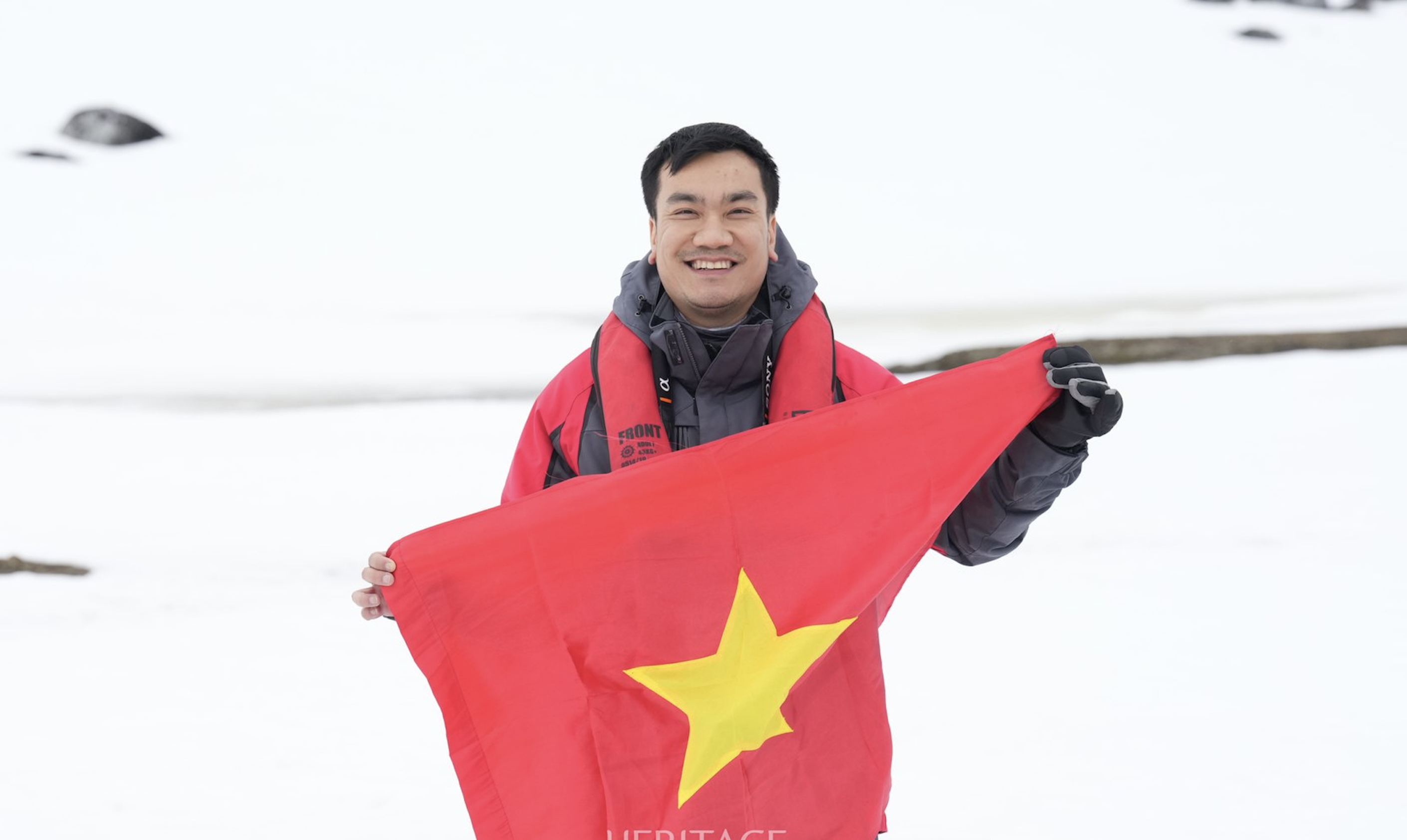

![[Photo] Closing of the 11th Conference of the 13th Central Committee of the Communist Party of Vietnam](https://vstatic.vietnam.vn/vietnam/resource/IMAGE/2025/4/12/114b57fe6e9b4814a5ddfacf6dfe5b7f)






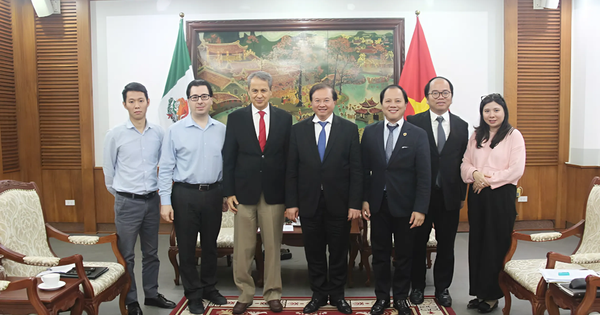



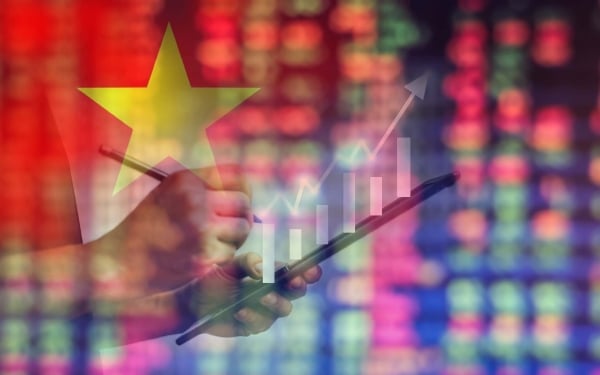


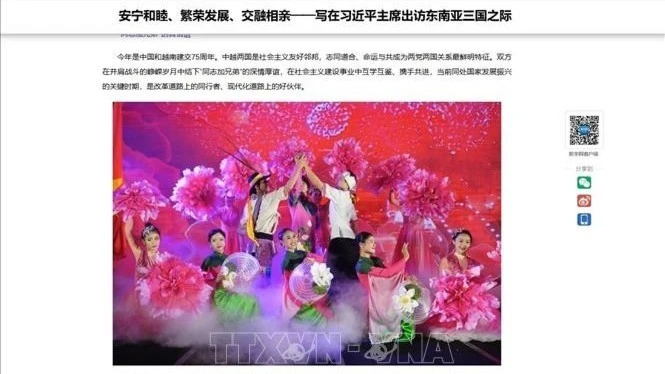
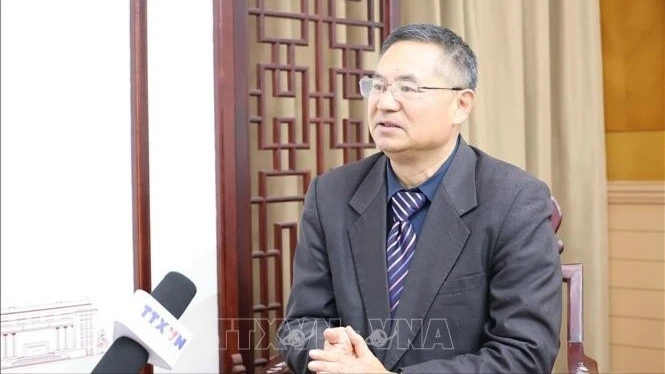
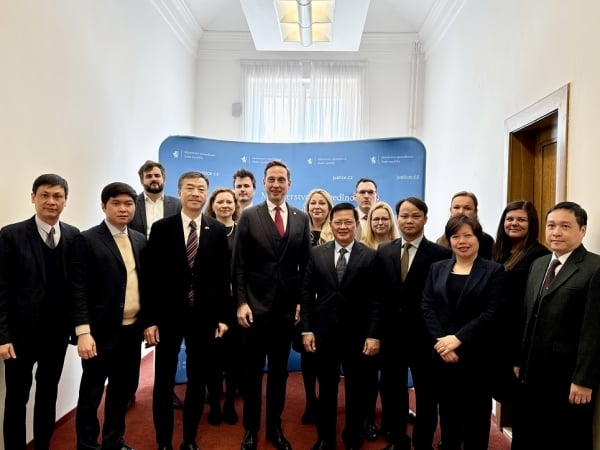
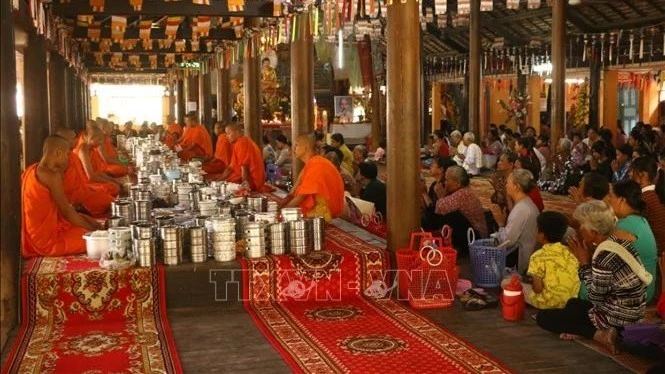
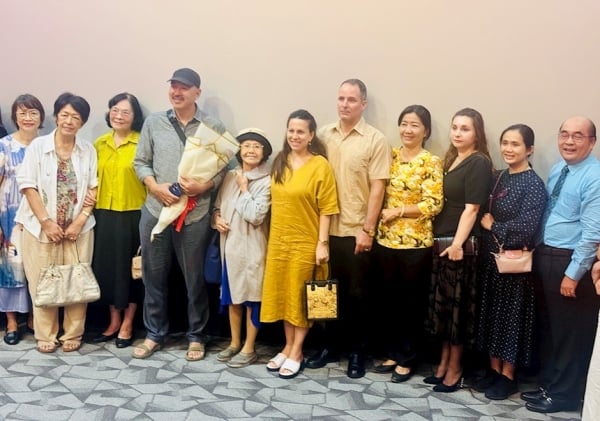



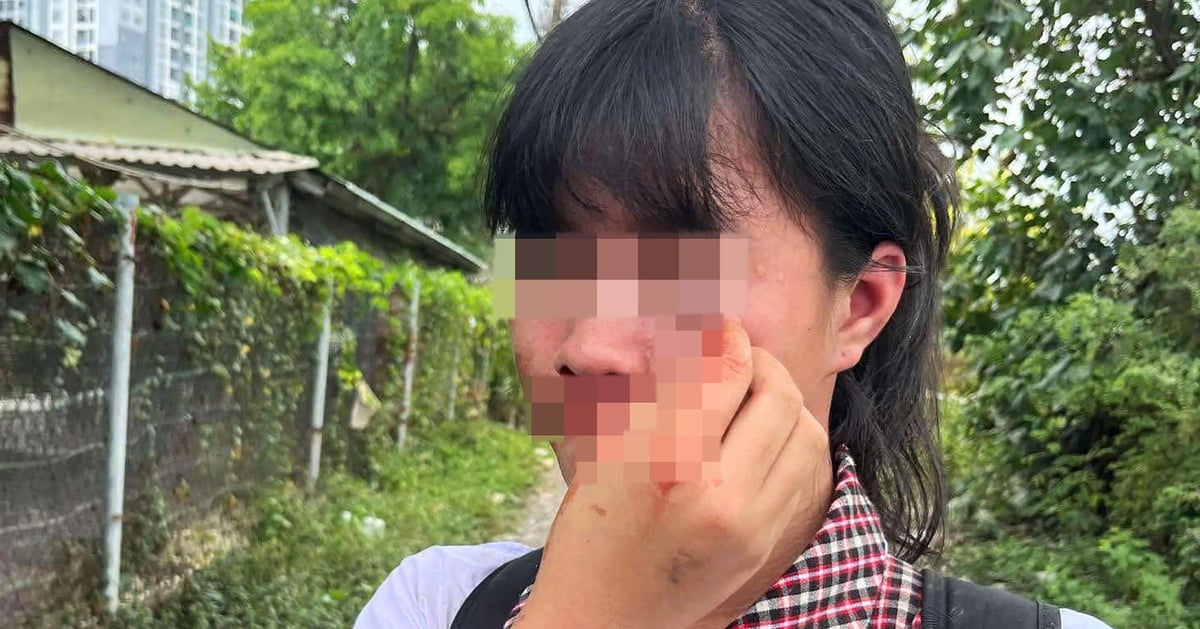


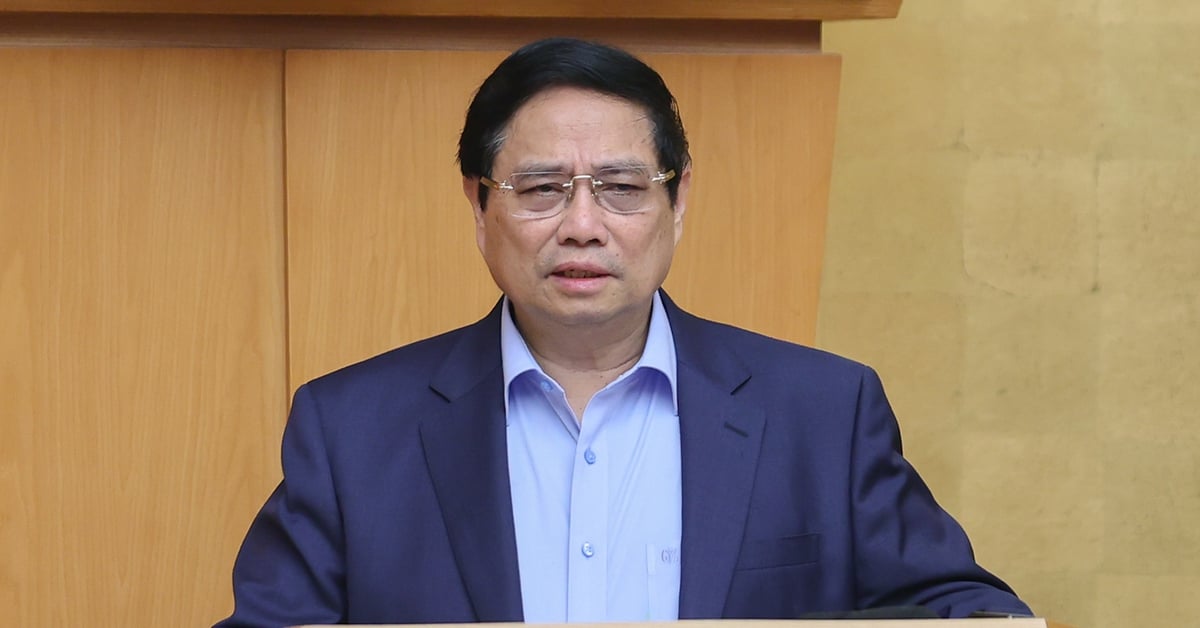
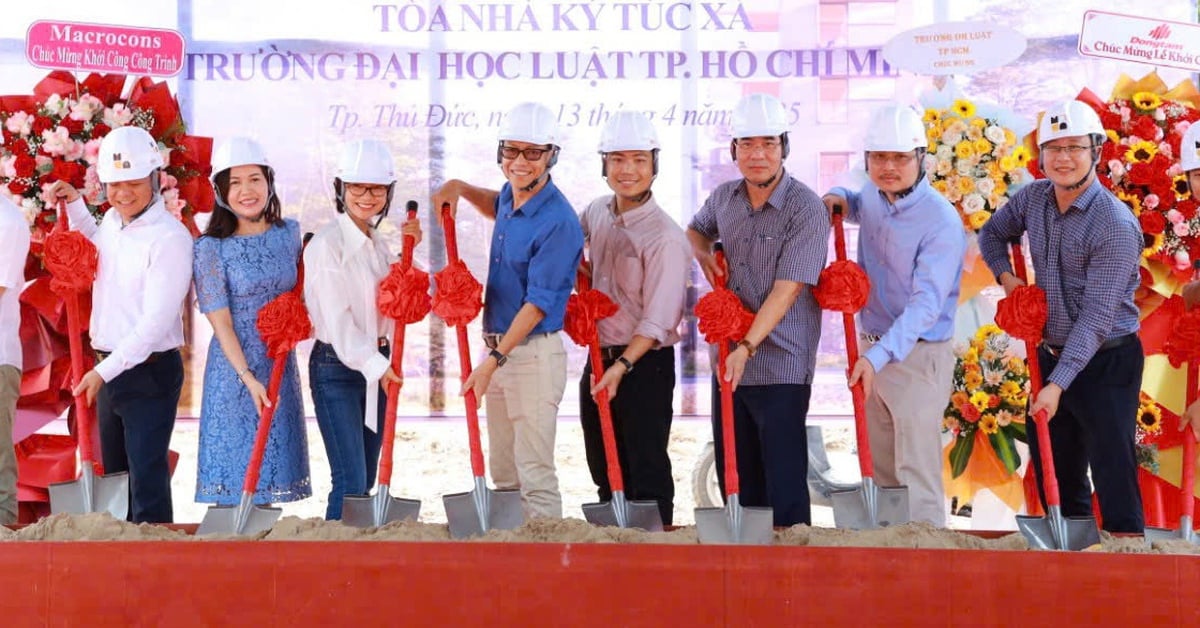

![[Photo] Overcoming all difficulties, speeding up construction progress of Hoa Binh Hydropower Plant Expansion Project](https://vstatic.vietnam.vn/vietnam/resource/IMAGE/2025/4/12/bff04b551e98484c84d74c8faa3526e0)















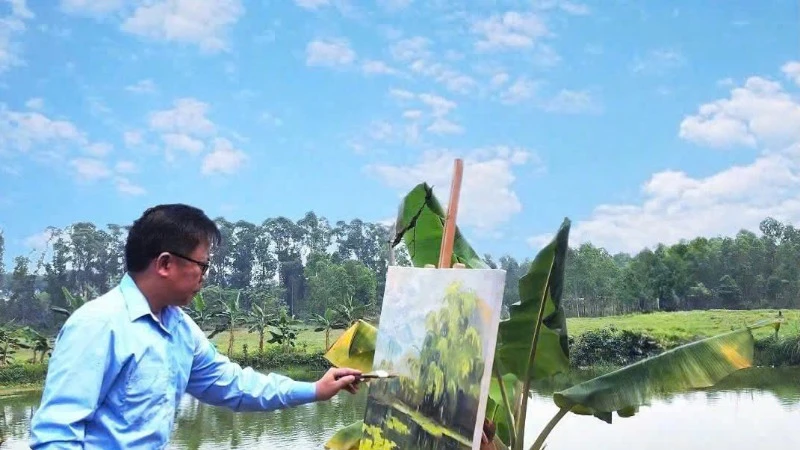
















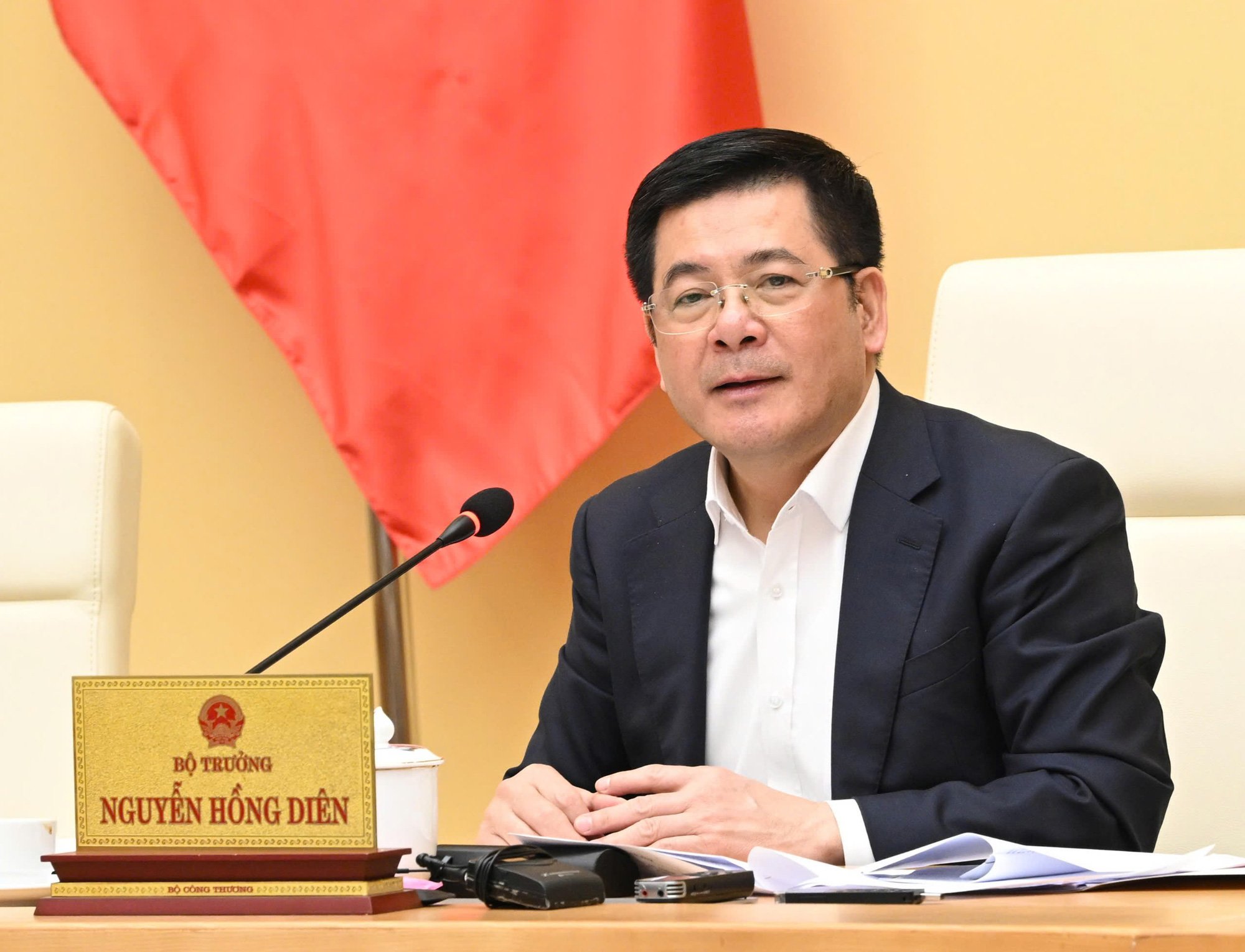
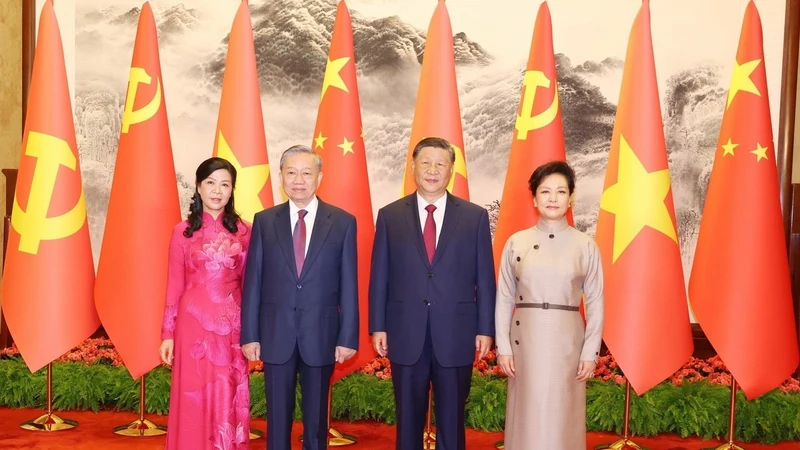








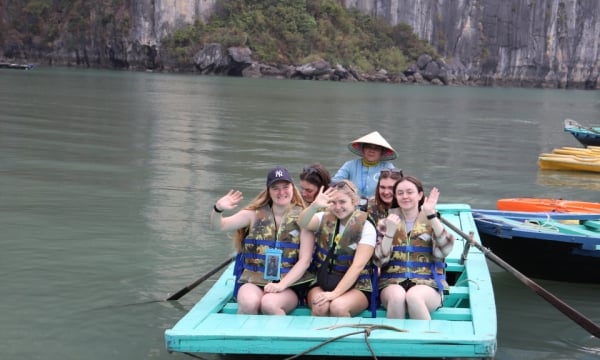

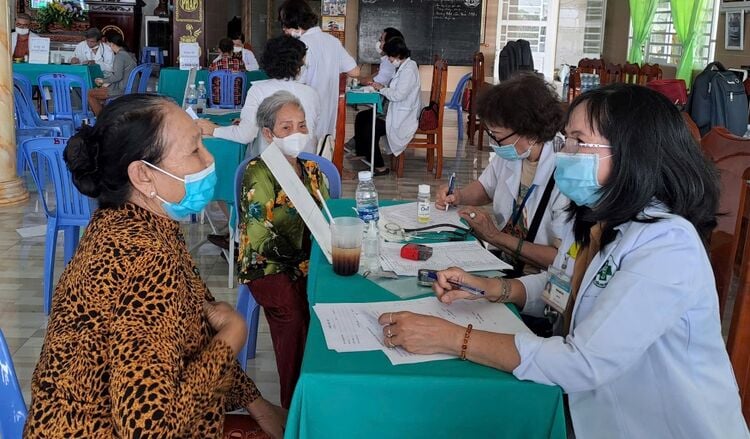

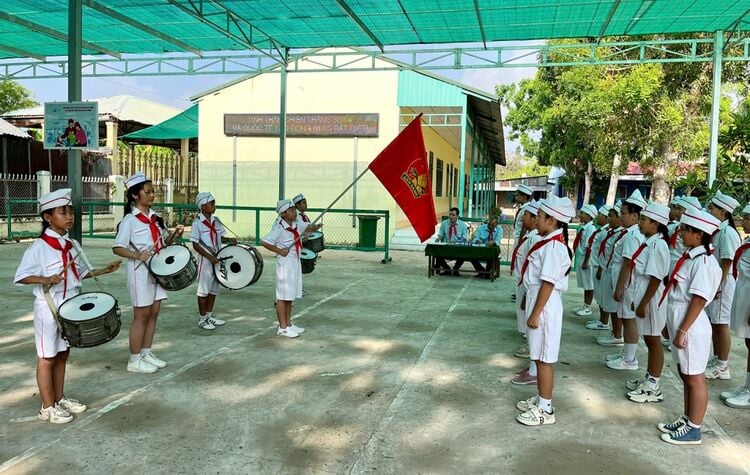
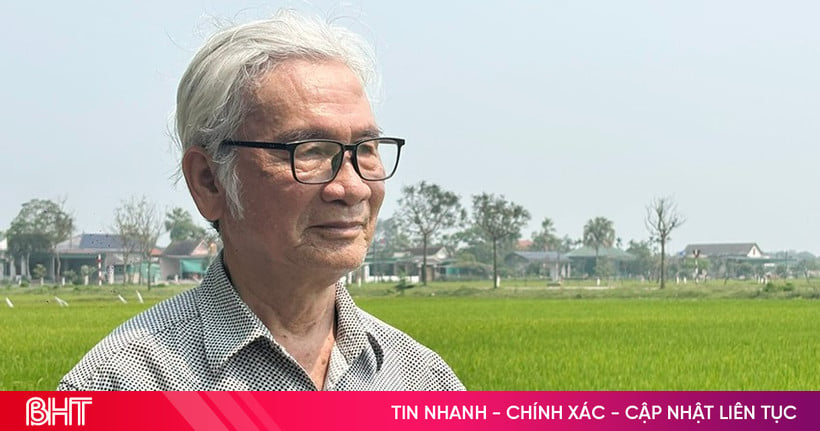

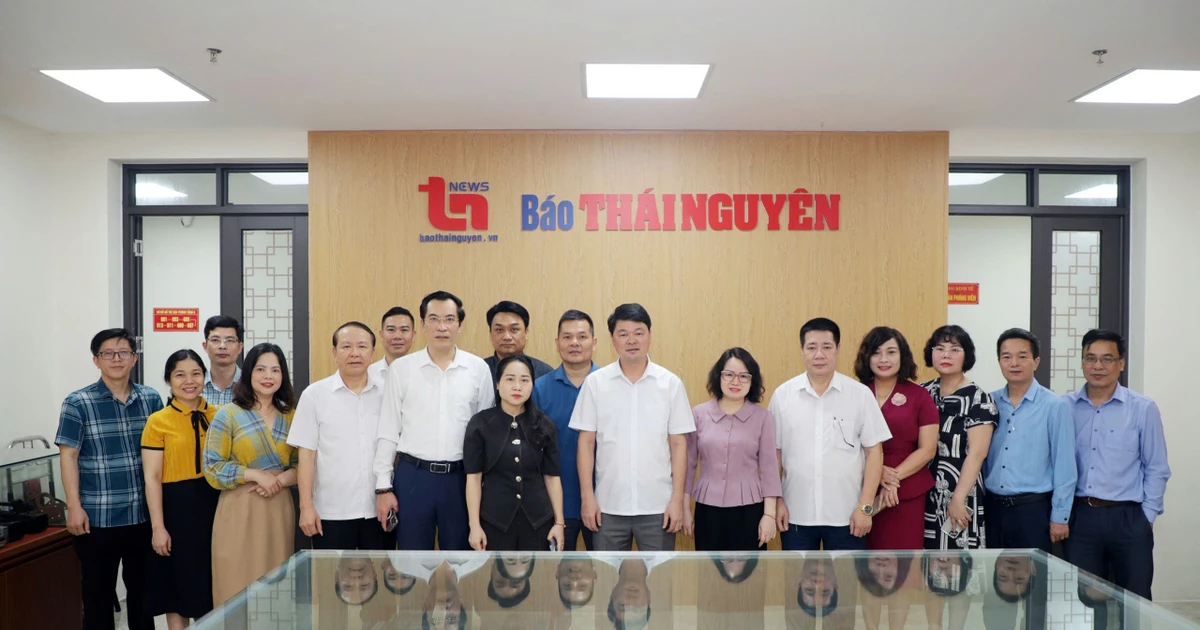












Comment (0)